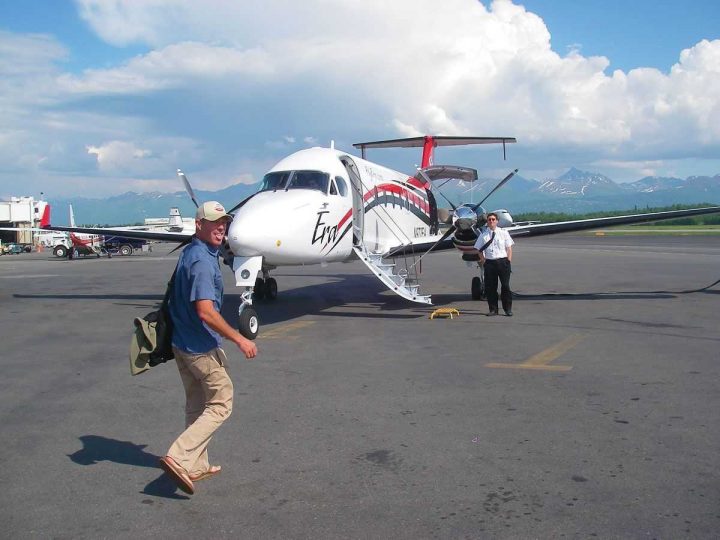Many fly anglers festoon their vests with useless stuff bearing the marks of disuse: dull-bladed scissors, moth-eaten woolen fly patches, and rust-encrusted hemostats. In addition, vest pockets are crammed with fly boxes of every size, each pocket on the verge of popping its stitching. On occasion, I have noted fly fishermen toting as many as three tackle bags, each bag containing enough “stuff” to stock a small fly shop. And I would be remiss if I neglected to mention the gigantic and cumbersome stripping baskets to my list of stuff that serves no purpose other than to get in the angler’s way and ruin a day on the water. When saltwater fly fishing, dispense with the “stuff.”
Many places you’ll fish dictate traveling light, especially when walking beaches and flats. Toting nonessential gear will wear you out over the course of a long day spent fishing in the sun’s glare. Furthermore, when you’re fishing in a skiff and you want to irritate your guide, show up for your guided day on the water with an overload of “stuff.”
So reduce your tackle, bringing only what you need for the day. If in doubt about your tackle needs, consult your guide about what you need to bring on a day trip. In most cases, he’ll have most of the required items for you. Just bring your rods. Two rods and two reels will cover most saltwater situations. Bring a substantial deck bag to stow only necessities; leave the “stuff” in your garage or tackle locker
On the subject of guides, learn from them. A good fishing guide is an outstanding provider of the information you need when flying in unfamiliar waters or in distant destinations Your guide’s time spent on the water logging hundreds of hours, studying the characteristics of the saltwater game fish and honing those saltwater fly fishing skills is almost guaranteed to make you a better fly fisherman.
Therefore, hiring a guide and lending him your ear is a giant step in the right direction if learning to saltwater fly fish is your goal. Once you have enlisted his assistance, pay attention; listen and learn from him. You might have been a real fly fishing whiz on Montana’s Beaverhead River, but you will find saltwater fly fishing an entirely different and often humbling experience. Even if you’re a veteran saltwater fly angler, chances are you haven’t spent the kind of time a guide has on his home waters. There’s always something to learn, even if you know it all.
You’ll find most saltwater fishing guides good listeners, and often, in the long run, a good and trusted friend. However, avoid bending his ear too much with stories about your skills as a freshwater fly-flinger. You are there and you paid to learn from him, not vice versa.
